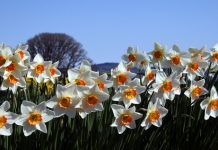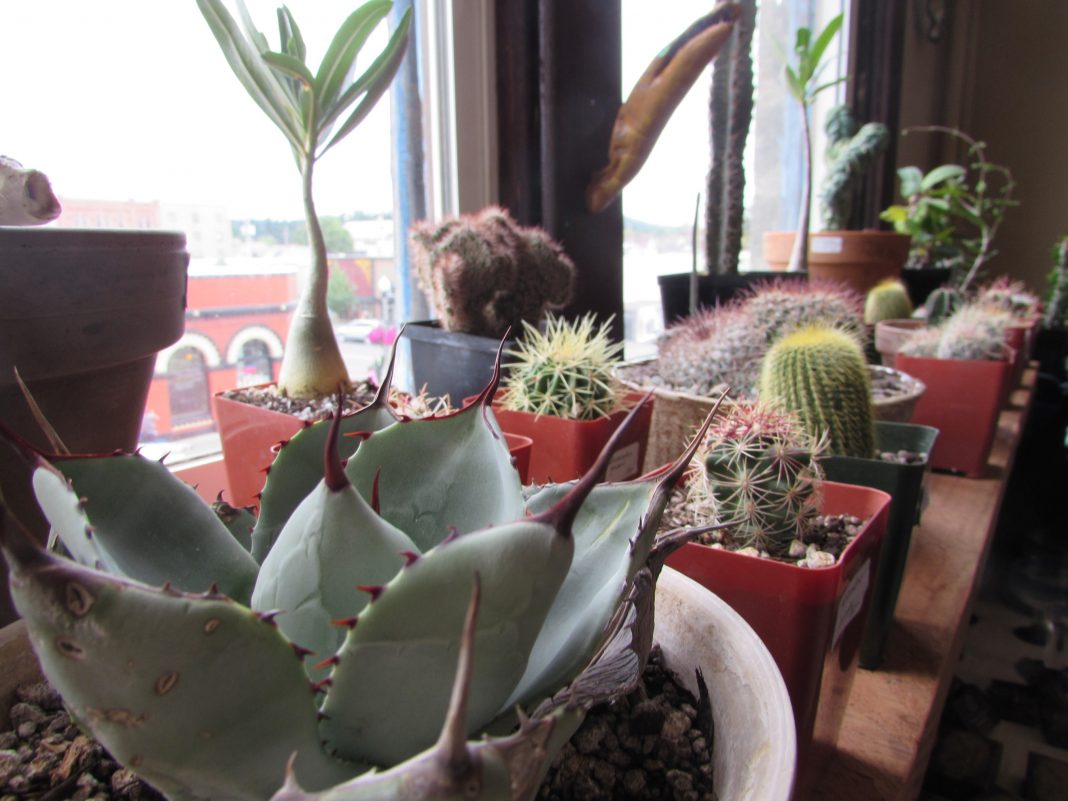For Pacific Northwesterners, the desert is an alien landscape, like something out of a Sci-Fi movie. It’s a far departure from the perpetually wet, lush green, salty seaside environment we live in, so it’s no wonder many of us find ourselves daydreaming of the American desert. Thankfully, you don’t have to travel to the Southwest to feel those desert vibes. Dry Dock Goods is a new boutique cacti and succulents shop in Anacortes, and owner Morgan Jones is on a mission to become a destination for cactus and succulent lovers and oddball plant collectors alike.
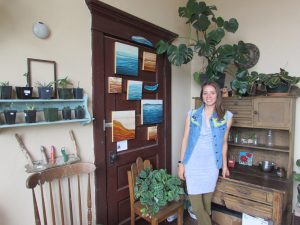
Morgan is a San Juan Islands native, growing up on Decatur Island and graduating from Anacortes High School. She received a degree in forestry from the University of Washington and went on to work for the Parks Service where she helped with ecology projects in forestry, fisheries and botany. Eventually, her job landed her in Tucson, Arizona where she fell in love—with both her partner, and the fascinating flora of the Sonoran Desert.
Bringing Cacti to the Northwest
When her partner’s job brought the couple back to Anacortes, they moved into her dad’s sailboat in Lovric’s Marina. Clearly, Morgan couldn’t quit the desert cold turkey, and a sailboat wasn’t the best environment for her new collection of desert plants—although her time there inspired the name, Dry Dock Goods. She found her current space in Anacortes’s Keystone building in December 2018. Initially it was a place for her plant babies and somewhere for her to “work from home.” Eventually, her personal plant collection turned into a retail shop where she could share her passion for arid plants with the Skagit Valley community.
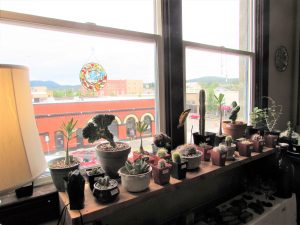
Entering the Keystone building where the shop is located, there’s a natural energy—it feels old, deeply rooted and monumental. If you make your way up the staircase to the second floor, take a right, then a left, you’ll find yourself in what feels like a dreamy desert mirage. That’s Dry Dock Goods. Just like the desert, there’s something special to be found in every nook and cranny, from cacti and succulents, to leafy jungle vines and spider plants, as well as local art, ceramics and body-care products from artisans of the Pacific Northwest and Sonoran Desert regions. Not to mention a unique view of downtown Anacortes from the southwest corner of the historic Keystone building.
“We’re in this huge house plant craze right now, and as much as I love those plants and tropicals, there’s not as much variety for house plants compared to the variety in the entire plant kingdom,” says Morgan. “Especially cactus and succulents, which I love. I think a lot of people are less inclined to pursue them as a houseplant, and may be a little fearful. A lot of people come in here and say they had a cactus or a succulent and it died. I want to help people realize that you can leave for a different project for three weeks and most of these guys are going to survive.”
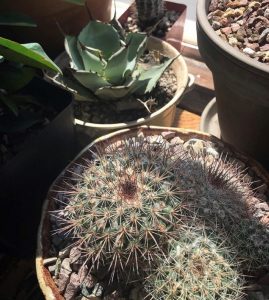
As much as we hate to admit it, we’ve all been there—excited about a new cactus or succulent, only to have it die a slow painful death. Or maybe you avoid getting a cactus or succulent because you assume it will just die. Morgan is on a mission to dispel this myth that arid desert plants are difficult to care for—in reality, it’s quite the opposite! Given the right environment, cacti and succulents can survive without care for several weeks to a month or more depending on the season. The key to healthy cacti and succulents is the soil, watering frequency and technique, and the environment.
“You can make your house into a myriad of ecosystems to try to replicate the ecosystem your plant comes from,” says Morgan. “Knowing the scientific name and doing just a little bit of research can make all the difference. Knowing a plant comes from South Africa where there’s super-hot, dry summers and rainy, cooler winters, you can change up your house, or an area of your house, to replicate that. It’s kind of fun to break it up and have a tropical area, a South African area, or a Southwest desert area. That’s what I find really helps me is having that background knowledge about where the little guys grow naturally.”
Morgan recently set up her own greenhouse where she’s honing her green thumb, working her magic with propagation and growing from seed, and in June, she started doing pop-up markets in Skagit County. “This shop and the local markets have been a fun way for me to get back into the community after being gone for 10 years,” says Morgan. “I love going out there and meeting more artisans and small business owners. That’s been really fun for me, so you can expect to see Dry Dock Goods out and about more in the future.”
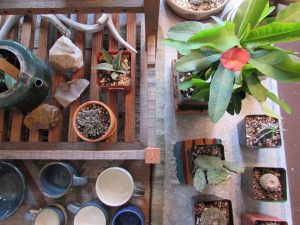
If you’re ready to embrace cacti and succulents (not literally, of course, ouch!), Morgan Jones at Dry Dock Goods has the most unique collection around. To bring a little piece of the Sonoran Desert into your Northwest home, stop in the Anacortes plant shop in the Keystone building or visit her at various pop-up markets in Skagit County and beyond including the Skagit Beer+Flea Market at Farmstrong Brewery in Mount Vernon and the Shipwreck Fest in Anacortes. You can also visit the Dry Dock Goods website, Facebook, or Instagram.
Dry Dock Goods
619 Commercial Ave #6, Anacortes
2nd floor of the historic Keystone building
drydockgoods@gmail.com





